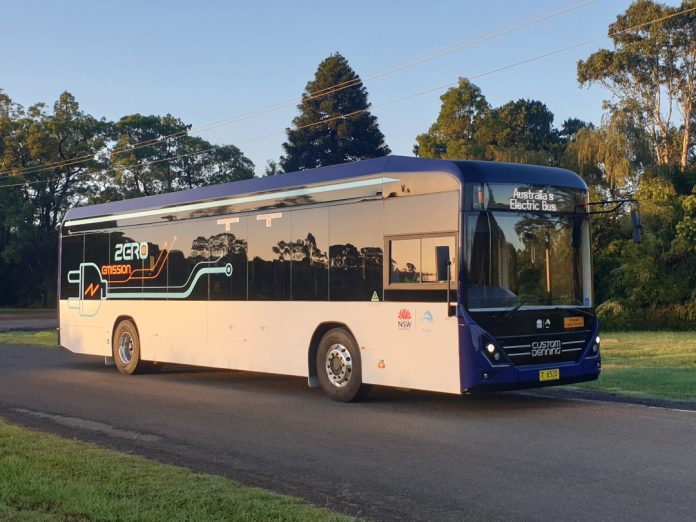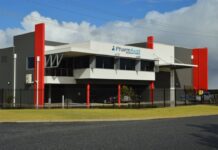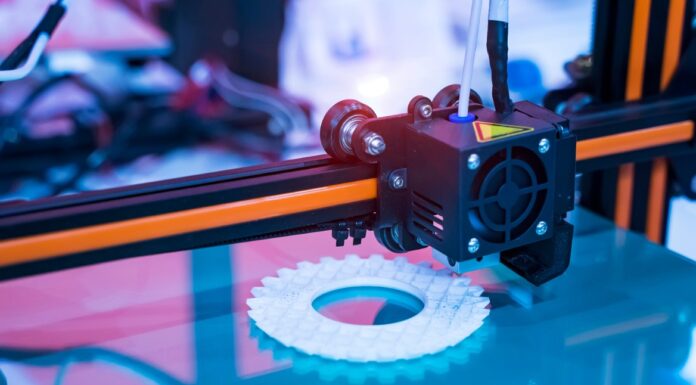
Media Release
One of Australia’s leading bus manufacturers, Custom Denning, has selected Siemens’ electric bus charging stations and digital depot management solution for its fleet of fully Australian designed and built ‘Element’ electric buses.
The Sicharge UC eBus charging infrastructure from Siemens will be part of Custom Denning’s zero emission electric bus trial.
Each trial bus will be delivered to a bus operator paired with a Sicharge UC100 capable of delivering up to 125kW, along with Siemens’ digital depot management solution. In addition to this, Custom Denning has also purchased a stock of Sicharge UC100 charging units for future bus sales.
The ‘Element’ electric buses are built at Custom Denning’s St Mary’s factory in Western Sydney. Once fully operational the site will be capable of producing 550 eBuses annually, with the intention of selling them locally and globally.
Siemens Australia Pacific Chairman and Chief Executive Officer Jeff Connolly said, “Electrification of transport fleets including eBuses, becomes more and more important as nations move towards embracing net zero 2050 ambitions. Our e-charging infrastructure already supports bus networks around the world – from Montreal to Nuremburg to Auckland; and now I’m delighted to see Custom Denning choose Siemens in Australia.”
“Custom Denning’s mission of using advanced manufacturing to continually improve very much aligns with Siemens’ ambitions to support local capability through world leading technology. It’s only fitting that the e-charging infrastructure is also world leading technology offering operators enhanced flexibility, robustness and scalability. In the coming years, Australia will have thousands of e-buses and that means the electrical and charging infrastructure needs to flexibly grow with it,” said Mr Connolly.
The Sicharge UC system serves the entire power range from 50 to 600 kW and can operate at up to 1,000 volts (V). This gives bus operators optimal flexibility when planning electric bus depots by providing highly efficient infrastructure designed to take into account the rapid advances in battery technology. Additionally, it enables bus operators to cost effectively expand charging infrastructure with up to five dispensers plus a pantograph per charging centre.
Scott Dunn, the Managing Director of Custom Denning, said choosing Siemens technology gave the company greater flexibility.
“Technology can change quickly, particularly around charging infrastructure. Which is why working with a company like Siemens that keeps ahead of the curve makes sense for us as a local manufacturer. We also needed a solution that would make the transition to electric buses as seamless as possible for bus operators and Siemens is a natural fit. Bus operators have the reassurance of a leading product that is used in many countries worldwide and also in getting the right charging infrastructure quickly through existing stock so they can hit the ground running with a packaged solution.”
Mr Dunn said Custom Denning plans to set a new standard for the city bus market, not only in Australia but internationally.
“Custom Denning believes that this new Element bus range has the potential for export throughout the right-hand drive markets that will offer numerous outcomes that will benefit the local, state and national economies recover,” Mr Dunn said.
The Element range features the Element Electric and the Element H2, which uses Hydrogen fuel cell technology. Features of the range include advanced solid state LMP® batteries, a two-stage electric drive motor and an advanced regeneration system.
“Custom Denning has gone to great lengths in not only producing a state-of-the-art zero emission bus range but producing a range of buses that minimise carbon footprint during, and at end of life,” Mr Dunn said.
The reporting and monitoring function of Siemens’ digital depot management solution will enable bus operators to centrally monitor all charging infrastructure and easily report on key metrics including OPEX savings. Smart management functionality can also enable scheduled charging to take advantage of lower overnight tariffs while ensuring that individual buses have reached the desired state of charge by the time they are needed for the next day’s operations.
The Custom Denning announcement comes after one of New Zealand’s largest bus operators, Go Bus, chose the same Siemens charging system to power 34 buses at depots in Christchurch and Auckland. The charging infrastructure supports 25 electric buses in Christchurch, the city’s first large-scale electric bus fleet, and nine buses in Auckland that operate on a new electric airport link. These operations started earlier this year.




















